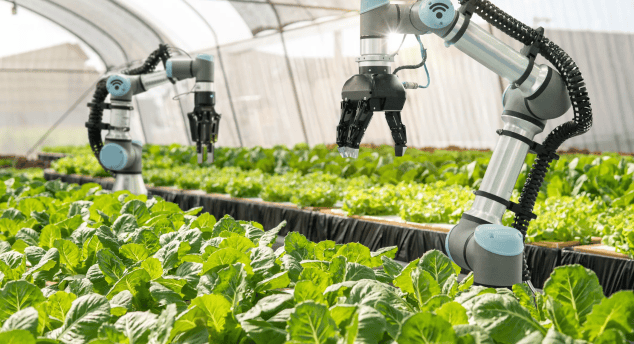Technology's Impact on Food Business Strategies: Embracing Innovation Ethically
The food industry is experiencing a technological revolution that is reshaping business strategies across the entire supply chain. From farm to table, innovative technologies are optimizing operations, enhancing sustainability, and transforming customer experiences. However, as we embrace these advancements, it's crucial to consider the ethical implications and ensure responsible implementation.
Felipe Saint-Martin
7/18/20243 min read


The food industry is experiencing a technological revolution that is reshaping business strategies across the entire supply chain. From farm to table, innovative technologies are optimizing operations, enhancing sustainability, and transforming customer experiences. However, as we embrace these advancements, it's crucial to consider the ethical implications and ensure responsible implementation.
Key Technological Impacts on Food Business Strategies
1. Enhanced Operational Efficiency
Artificial intelligence (AI) and automation are streamlining food production, processing, and distribution. Smart sensors and Internet of Things (IoT) devices enable real-time monitoring of equipment, inventory, and food safety conditions.This data-driven approach allows businesses to optimize resource allocation, reduce waste, and improve overall efficiency.
2. Data-Driven Decision Making
Advanced analytics and machine learning algorithms are providing unprecedented insights into consumer preferences, market trends, and operational performance.This enables food businesses to make more informed decisions about product development, pricing strategies, and inventory management.
3. Improved Supply Chain Management
Blockchain technology and AI-powered logistics solutions are enhancing traceability and transparency throughout the food supply chain. This not only improves food safety but also allows businesses to respond more quickly to disruptions and changing consumer demands.
4. Personalized Customer Experiences
AI and data analytics are enabling food businesses to offer personalized recommendations and tailored experiences to customers. This level of customization can significantly enhance customer satisfaction and loyalty.
5. Sustainable Practices
Technology is playing a crucial role in promoting sustainability in the food industry. From smart waste management systems to energy-efficient manufacturing processes, businesses are leveraging technology to reduce their environmental impact and meet growing consumer demand for sustainable products.
Ethical Considerations in Embracing Food Technology
While the benefits of technology in the food industry are clear, it's essential to approach its adoption with careful consideration of ethical implications:
1. Data Privacy and Security
As food businesses collect and analyze more customer data, ensuring the privacy and security of this information is paramount. Companies must implement robust data protection measures and be transparent about their data collection and usage practices.
2. Fairness and Inclusivity
AI algorithms used in food production and distribution must be designed to avoid bias and ensure fair treatment of all stakeholders, including farmers, workers, and consumers. This includes addressing concerns about the potential displacement of workers due to automation.
3. Environmental Sustainability
While technology can promote sustainability, it's crucial to consider the environmental impact of the technologies themselves. For instance, the energy consumption of data centers used for AI processing should be factored into sustainability assessments.
4. Transparency and Accountability
As food systems become more technologically complex, maintaining transparency and accountability is essential. Businesses should be able to explain how AI-driven decisions are made and take responsibility for the outcomes.
5. Animal Welfare
In cases where technology is used in livestock farming, ethical considerations regarding animal welfare must be at the forefront. Technology should be used to improve animal living conditions, not to make animals more tolerant of poor conditions.
Strategies for Ethical Technology Adoption
To embrace technology ethically in food business strategies, companies should consider the following approaches:
Develop clear ethical guidelines: Establish a framework for ethical technology use that aligns with your company's values and mission.
Conduct ethical impact assessments: Before implementing new technologies, assess their potential impacts on stakeholders, including employees, consumers, and the environment.
Prioritize transparency: Be open about how technology is being used in your business processes and how it affects products and services.
Invest in employee training: Ensure that staff at all levels understand the ethical implications of the technologies they're using and are equipped to make responsible decisions.
Collaborate with stakeholders: Engage with farmers, consumers, and regulatory bodies to address ethical concerns and develop industry-wide best practices.
Regular audits and reviews: Continuously assess the ethical implications of your technology use and be prepared to make adjustments as needed.
By embracing technology with a strong ethical foundation, food businesses can harness the power of innovation to drive growth, improve sustainability, and enhance customer experiences while maintaining trust and integrity in their operations. As the food industry continues to evolve, those who successfully balance technological advancement with ethical considerations will be best positioned to thrive in the long term.
Innovate with integrity: Where cutting-edge technology meets culinary responsibility.
